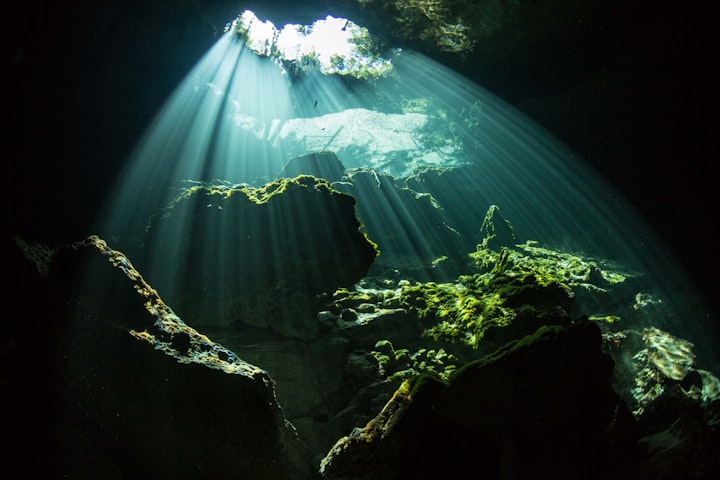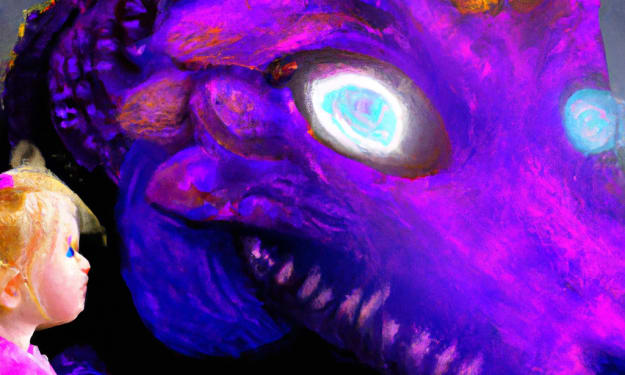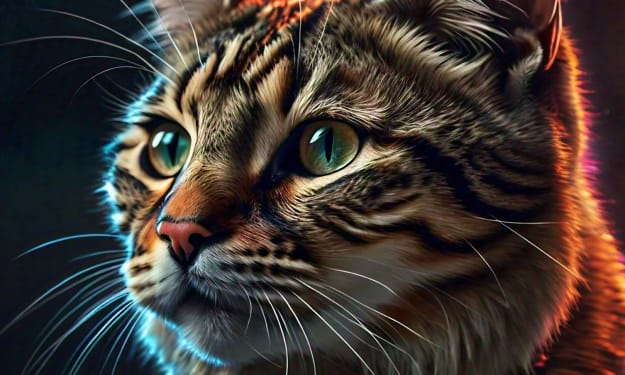The Nature of my Dis-Ease
Regressive Evolution
I woke up at 4:30 this morning and I couldn't go back to sleep. My boyfriend woke up and asked me what was wrong because I was shaking and crying. I said I couldn't sleep, so he said, "Let's not sleep anymore, then."
We sat up in bed and talked a bit, and I told him between sobs that I couldn't sleep because I couldn't stop thinking about how paralyzed I feel by my own seeming inability to progress forward in life; how trapped I feel. I want to eat better, exercise more, drink more water, breathe better, live better. I want to find a job more suitable to who I am; I want to write for a living. I am not doing any of these things, or even making any real progress towards them. It isn't because I'm not willing to put in the work, it's all simply because I think I can't.
I live with the disease of addiction, and my addiction is riddled with mental traps I set by telling myself "You won't." You could do better, but you won't. You could drink eight glasses of water every day, but you won't, so no point trying. You could go for a walk every day after work, but you won't do it every day, so why do it today? You could write, but you'll just stare at the blank page for twenty minutes and then give up, so what's the point? This thinking is perfectly counterbalanced by "I'll start tomorrow." If I can trick myself into believing that I will change tomorrow, I don't get depressed about telling myself I won't today. Then I can watch TV, or listen to an audiobook, or play a game until I stop thinking about it.
The worst part about all of this is that I am fully aware of my internal process, but that small, conscious part of me feels frozen, incapable of action, unable to escape. The trap is the comfort of not changing. I have cocooned myself in a cozy complacency; free of risk, devoid of reward. I exist, for a time, in homeostasis, achieved by allowing myself, like water, to settle into the lowest, darkest region of my potential. It sounds good; stability is attractive. The problem is, like the unmoving water, I stagnate at this depth.
There are underwater caves, devoid of light, where entire ecosystems exist, replete with organisms that have adapted, over millions of years, to live in complete darkness. I read an article today about marine biologists who have studied the creatures that live in these caves, and found this quote from Tom Iliffe, a professor of marine biology, to be relevant:
“These animals first colonized caves at a time when the continents were still connected to each other and most of the world was one big land mass. This was at least 180 million years ago, a time when dinosaurs dominated the Earth. Since then, these small crustaceans have lived underground in total darkness all this time, so there was no need for vision or even eyes. Thus, they were forced to live without sight, and they are still living like that today. It’s what is known as ‘regressive evolution’ – when evolutionary processes go in reverse and body features are lost due to non-use.” (Randall, 2015)
Regressive evolution. Sounds ominous. It's worse than lack of growth; it's growing in the wrong direction. Actively evolving into something less than what I want to be. The thing is, I am not like these creatures. I am human, and I have the ability to internally evolve over the course of one lifetime by choosing what to nurture in myself. The truth is, I haven't been making good choices. It's like I have a vegetable garden where I only water the veggies I don't like and let the ones I love wilt and die, and then use them to fertilize the ones I hate, until my delicious peppers and squash die, and all I have are broccoli and tomatoes.
I mentioned, in the beginning, that this is what my addiction is like. So what does this have to do with addiction? I think a lot of people have a misconception regarding the disease of addiction; that it doesn't exist apart from drugs or alcohol. I mean, there is this outspoken segment of people who think addiction isn't a disease at all, because they mistakenly think that the "cure" for addiction is as simple as eliminating the offending substance, or that people should somehow simply retcon their lives and never use the drug in the first place. Therefore, they think, addiction is a choice, not a disease.
The thing is, I haven't had a drug or even a real craving for a drug in almost two years, but I still suffer from the same issues, thinking, and behaviors that led me to drugs in the first place. There is no one cure for all who suffer from addiction, maybe because it isn't so much of a disease, as it is a supergroup of other diseases. (Think: The Traveling Wilburys of mental anguish.)
Consider the Portuguese Man-o-war. That's a jellyfish, right? Wrong. The Man-o-war is actually a siphonophore; a colony of specialized organisms that cooperate as one entity. Some make up the sail-like body, which allows it to be moved around by the wind, some are for digesting food, some are for reproduction, and some are for defense. All together, they result in what looks like a jellyfish. There's the part you can see on the surface: the sail, and then there are the strands of interconnected tentacle-like polyps below. They can extend nearly one hundred feet, unseen, below the surface, and they sting and paralyze prey with excruciating, sometimes heart-stopping pain.
What you see on the surface of addiction may be physical and/or mental dependence on a substance, but beneath the surface, extending deep into the psyche, are hidden problems like depression, anxiety, chronic pain, and trauma, that make up the painful, paralyzing tentacles of addiction. The compounding factor is that not everyone has the same combination of issues. Even if we all had the same combination, there is no silver bullet for any given mental illness. Some people find a medicine that works; some find a type of therapy that alleviates their symptoms. Some combine a cocktail of pills, others combine pills and therapy. Some people never find anything that helps.
Speaking for myself, the unseen tentacles of addiction are physical, mental, emotional, and spiritual. The physical part I left behind, two years ago, in a puddle of sweat and tears at a rehab in Florida. The rest I struggle with every day. Some days, I find myself paralyzed by self-doubt, fighting to surface for a breath. Those are the days I lie to myself, telling myself I am too damaged to move forward, not good enough to succeed.
Today I remembered that when I write about these things, put them into words, I thrust them into the light. When I crawl back out of the cave behind them and let my eyes adjust, I can see them for the lies they are. Some days it really is okay to give myself a break, celebrate the fact that I made it through active addiction alive. Some days it's enough to just stay afloat, but the current is always going against me, trying to wash me back into that dark cave.
It's so easy to fall into the trap of regressively evolving to survive that level of existence because it still feels like growth sometimes, but I don't want to become comfortable and adjust to the dark. I want to squint in the light of the sun and swim as far as I can make it. Even if I don't do it perfectly, even if I don't achieve everything I set out to do, I will find meaning and fulfillment.
Addiction can persist in the absence of substance, but I cannot.
Randall, K. (2015, May 14). In Totally Dark World, Blind Cave Creatures Survive. Texas A&M Today. Retrieved November 10, 2022, from https://today.tamu.edu/2015/05/14/blind-cave-creatures-lose-sight-but-develop-other-senses-says-texas-am-study/
About the Creator
Lyndsay Ryor
I want to be a writer when I grow up, but I have no intention of growing up, so I suppose I'll just be one now.







Comments
There are no comments for this story
Be the first to respond and start the conversation.